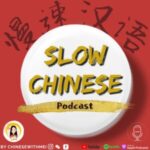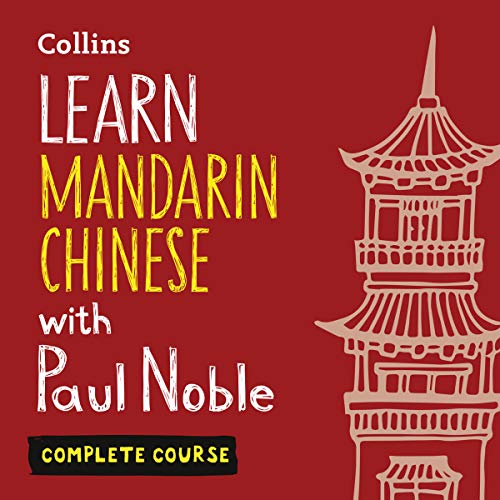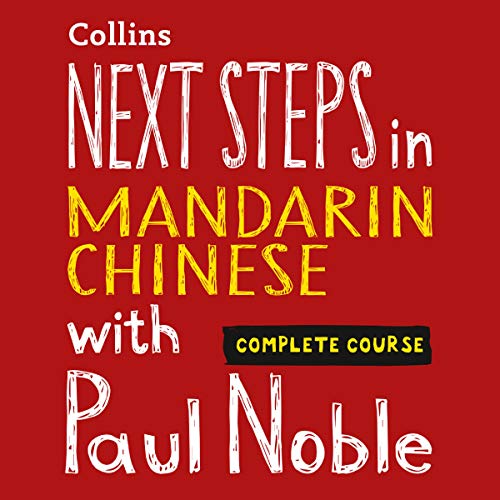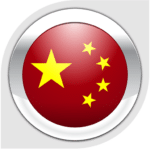
26 Practical Resources for Chinese Listening Practice at Any HSK Level
When you’re studying Chinese, learning to listen can be a bumpy road.
If you struggle with listening in Mandarin, you’re certainly not alone. But you’re also not out of luck!
These 26 stellar Chinese listening practice resources can completely change your Mandarin listening abilities.
Each resource has been tagged with a difficulty level and the corresponding HSK levels so you can easily find the right resource(s) for you!
Contents
- Chinese Listening Practice Resources
-
- 1. Coffee Break Chinese
- 2. FluentU
- 3. Learn Mandarin Chinese – Chinese Audio Lessons
- 4. Slow Chinese Podcast
- 5. Learn Mandarin Now Podcast
- 6. Chinese Track Podcast
- 7. Learning Chinese Through Stories
- 8. Top Chinese Songs 2023
- 9. 42 Essential Sentence Patterns – Intermediate Chinese Listening Practice
- 10. 35 Minutes of Chinese Listening Comprehension for Beginners
- 11. TiffwithMi
- 12. Easy Mandarin
- 13. Slow Chinese Listening & Chinese Reading Practice
- 14. Chinese Vocabulary for Beginners
- 15. Living Language Mandarin Chinese
- 16. Pimsleur Chinese
- 17. Learn Mandarin Chinese with Paul Noble
- 18. Chinese Flash Cards Kit Volume 1
- 19. Learn in Your Car: Mandarin Chinese – Level 1
- 20. Mandarin for Kids Set 1
- 21. Chinese-Tools.com
- 22. HelloChinese
- 23. Nemo Mandarin Chinese
- 24. 50Languages
- 25. Viki
- 26. AsianCrush
- How To Use These Resources to Improve Chinese Listening Skills
- How to Nail the HSK with Chinese Listening Practice
Download: This blog post is available as a convenient and portable PDF that you can take anywhere. Click here to get a copy. (Download)
Chinese Listening Practice Resources
1. Coffee Break Chinese
Difficulty: Beginner to Intermediate (HSK 1-4)
Availability: Website | iOS | Android | Spotify
Price: Free podcast; course available for $145
Designed for learners, this 40-episode podcast is ideal for beginner and intermediate Chinese speakers.
Each episode is hosted by Mark, the founder of Coffee Break Languages, and Crystal, a native Chinese speaker. During the episodes, Crystal answers Mark’s questions about Chinese and corrects his pronunciation.
Episodes are 15-20 minutes long because they’re structured more like lessons than regular podcast talk shows. But if you want to improve your listening and learn how the language works at the same time, Coffee Break Chinese is a great place to hang out.
Each episode is free and makes for perfect on-the-go learning material, but Coffee Break goes even further and offers courses based on their episodes via Coffee Break Academy. These courses feature video and audio lessons, a lesson guide, transcript and a bonus audio episode.
2. FluentU
Difficulty: Beginner to Advanced (HSK 1-6)
Availability: Website | iOS | Android
Price: Free trial; monthly and yearly subscriptions available
FluentU uses authentic Chinese videos to create personalized language lessons. The videos are made by and for native speakers, so you can be sure you’re hearing the language as it’s really used.
Each FluentU video comes with an array of learning tools—such as interactive captions and a contextual visual dictionary—so you can also be sure that you’ll be able to fully comprehend everything you hear.
There are post-video quizzes and multimedia flashcards to help you test what you’ve learned. Plus, if there’s specific vocabulary you want to study, you can search the program to find all videos containing that word or term.
The platform boasts a large video library that’s conveniently organized by topic and difficulty, so there’s plenty of variety to suit every learner’s interests.
3. Learn Mandarin Chinese – Chinese Audio Lessons
Difficulty: Beginner to Advanced (HSK 1-5)
Availability: Website | iOS | Android | Spotify
Price: First 100 lessons free; subscriptions starting at $77 for six months
Listening skills are so important if you want to be able to hold a conversation with a native speaker. This podcast from Melnyks Chinese is a perfect tool to reach this goal.
Each episode covers situational dialogues that you may have to use at some point if you travel abroad. The speaker pronounces each word slowly and clearly, and leaves time for listeners to repeat.
Members can access PDF transcripts of each episode, plus worksheets to help further improve comprehension skills. The podcast is suitable for almost all levels of learners, though advanced learners may find some of the dialogues too easy.
For a little culture, try out the episodes “Visiting Hot Springs” and “Expressing Condolences.” Note that the first 100 lessons are free, but you’ll have to sign up for an account to access the rest.
4. Slow Chinese Podcast
Difficulty: Beginner to Intermediate (HSK 1-4)
Availability: Apple Podcasts | Podbean iOS | Podbean Android
Price: Free
If listening to native Chinese speakers talk at their natural speed stresses you out, you’ll love the Slow Chinese Podcast.
While it is made by native speakers, they intentionally talk at a slower rate so Chinese learners can keep up. An authentic podcast that’s not only designed for learners but also doesn’t contain any English? That’s something you don’t see every day!
The lessons are two to three minutes long on average, making this podcast perfect for shadowing or transcribing material. It was last updated in 2018, but with over 200 episodes, you won’t be getting bored anytime soon.
5. Learn Mandarin Now Podcast
Difficulty: Beginner (HSK 1-3)
Availability: Podbean iOS | Podbean Android
Price: Free
Learn Mandarin Now stopped running in 2017, but it features a ton of Chinese language content, including how-to guides, Chinese language lessons and even success stories from other Mandarin learners.
This is a strong resource for beginners because it features a lot of inspiring listening content to get newbies motivated when the going gets rough.
I recommend listening to “How to talk about success in Mandarin Chinese,” a thought-provoking episode that explores what it means to be successful and how to talk about these concepts in Chinese.
And if you’re learning Chinese for business or just want to learn technology-related vocab, “Fixing technical problems in Mandarin Chinese” is a good listen.
6. Chinese Track Podcast
Difficulty: Beginner (HSK 1)
Availability: Website | iOS | Android
Price: Free
This entry is a little different from the previous podcasts I’ve mentioned.
There isn’t a ton of spoken Chinese in every episode. Instead, the purpose of the Chinese Track podcast is to interview people who have learned Mandarin as a second language.
You’ll listen to other Chinese learners explain the approaches they took to improve their language skills throughout their own journey. Much of it involves perfecting listening skills. Sometimes, a little advice from the ones who’ve made it can go a long way!
This podcast resource last updated in 2016, but there are plenty of episodes available for Chinese audio practice. I suggest listening to the Alex Trup and Xiao Fei interview episodes.
7. Learning Chinese Through Stories
Difficulty: Beginner to Advanced (HSK 1-6)
Availability: Website | YouTube | Spotify
Price: Some free content; subscriptions starting at $7 per month
Learning Chinese Through Stories is another resource with exclusively Chinese audio to help you hone your listening skills.
Each episode is led by two narrators who read and discuss a short story or song. They speak at a natural pace, which may be slightly intimidating for complete beginners, but the content and discussion is never more challenging than the given level, and it’s very conversational.
Speaking of levels, the episodes are divided into nine levels, from Low Novice to High Advanced, in order to accommodate all learners.
While you’re following along, I highly recommend that you add words to your personal flashcard set. For access to vocabulary annotations, full transcripts and other handy extras from each episode, feel free to support the podcast on Patreon.
8. Top Chinese Songs 2023
Difficulty: Intermediate to Advanced (HSK 4-6)
Availability: YouTube
Price: Free
If you need some help finding Mandarin music, here are 60 music videos waiting for you to explore!
These songs aren’t just great learning tools, they’re also relevant and popular. The advantage is that you’ll be learning with and listening to music that’s up-to-date so you can talk about it with Chinese friends or language partners.
It’s also important to note that since this is a playlist of recent music videos, it’s regularly updated. That means you’re consistently being exposed to new Chinese jams! A lot of them are also slower, making them perfect shadowing material.
9. 42 Essential Sentence Patterns – Intermediate Chinese Listening Practice
Difficulty: Intermediate (HSK 3-4)
Availability: YouTube | Website
Price: Free
It’s crucial to learn sentence patterns when studying Chinese, especially as a novice learner. Once you have sentence patterns down, you’ll have some grammatical context to work from when learning vocabulary words throughout your language learning journey.
This video is an excellent crash course in 42 essential sentence structures in Mandarin. The comments section is loaded with happy learners who found this video to be quite a lifesaver.
It would be wise to watch this video as a beginner or intermediate learner, especially if you’re learning these sentence patterns in an already established course but are struggling to keep up when you hear them in real life.
10. 35 Minutes of Chinese Listening Comprehension for Beginners
Difficulty: Intermediate (HSK 3-4)
Availability: YouTube
Price: Free
Visual learners, you’re in luck. This half-hour video guide from ChineseClass101 is an incredible, condensed lesson on listening comprehension in Chinese.
While the video is marketed towards beginners, many learners in the comments section have noted that the dialogues are notably more difficult than advertised.
I recommend checking this video out if you’re an upper-novice to upper-intermediate learner.
11. TiffwithMi
Difficulty: Intermediate to Advanced (HSK 4-6)
Availability: YouTube
Price: Free
These Singaporean YouTubers are extremely entertaining, addicting to watch and subtitle their videos in Chinese and English!
Their channel is full of challenges, pranks, vlogs, travel videos and much more. Needless to say, it’ll take a while before you get bored with their content.
If you want to learn some useful Chinese vocabulary and phrases, their vlogs are packed with learning material. And the fact that there are Chinese and English subs make it even easier to recognize grammar patterns and learn new words through meaningful context.
Videos are usually about 10-15 minutes long, so they aren’t ideal for shadowing, but if you want to chill in bed and binge-watch YouTube while feeling productive and improving your Chinese, this channel will suit your fancy!
12. Easy Mandarin
Difficulty: Intermediate to Advanced (HSK 4-6)
Availability: YouTube
Price: Free
The YouTube channel Easy Languages is known for turning unscripted interviews with native speakers into valuable language lessons.
The channel has playlists for many languages, from Hungarian to Vietnamese, and their Chinese playlist has 85 videos and counting.
Each video features a new topic, such as “What do you like about Taiwan?”, “Politics and elections in Taiwan,” “What does freedom mean to you?” and much more. Plus, each video is subtitled in English, Chinese characters and pinyin, so you’re bound to pick up some new vocab.
The videos are recorded in Taiwan, so if you want to study Taiwanese Mandarin and the Taiwanese accent, in particular, these videos are the perfect study materials.
However, the difference between Standard Mandarin and Taiwanese Mandarin isn’t huge, so Standard Mandarin learners will find them just as beneficial!
13. Slow Chinese Listening & Chinese Reading Practice
Difficulty: Beginner to Intermediate (HSK 2-5)
Availability: YouTube
Price: Free
This playlist is a compilation of stories told in Mandarin. Not only are they good for practicing your listening skills, but they’re also very entertaining and give deep insights into Chinese culture.
Many of the videos are labeled “Beginner” or “Intermediate/Advanced,” so you know exactly which videos to focus on. Some are even labeled with their corresponding HSK level!
Similar to Easy Mandarin, each video in this playlist is accompanied by English, Chinese characters and Pinyin subtitles.
Although these stories are great for listening to at any time of the day, I recommend you listen to each story twice: once in the morning, and then once more right around bedtime. This brings us nicely to the next listening resource, too!
14. Chinese Vocabulary for Beginners
Difficulty: Beginner to Intermediate (HSK 1-4)
Availability: YouTube
Price: Free
If you haven’t tried to learn while you sleep, it’s about time you did!
Despite sleep learning being a controversial subject, with research indicating varying levels of effectivity, lots of educators seem to be on board with it. This clip is one of many YouTube videos teaching common Chinese vocabulary words to sleepers.
One study, however, demonstrates that this type of studying only improves information recall, meaning that new information wasn’t retained, but previously learned vocab and structures were actually reinforced.
Only you can be the judge of whether it works for you or not, so it doesn’t hurt to give it a shot! As long as you treat sleep learning as a review session rather than a new listening lesson, you might see some benefits.
15. Living Language Mandarin Chinese
Difficulty: Beginner to Advanced (HSK 1-4)
Availability: CDs
Price: $61.99
This isn’t just audio—it’s a multimedia package that includes coursebooks, a Chinese character guide, online learning and, of course, listening resources.
This package is the complete edition of “Living Language Mandarin Chinese,” so it offers three coursebooks from beginner to advanced levels. In total, there are 46 lessons accompanied by cultural notes, exercises and more.
This program offers plenty of audio as well. In fact, you’ll receive nine CDs featuring audio exercises, vocabulary, dialogue and more. You can listen to them while using the printed material, or use them separately for hands-free learning.
And if you don’t have a CD player anymore, don’t worry! Downloadable audio is also available with your purchase. However, please note that this resource is no longer being produced, so physical supplies may be especially limited.
16. Pimsleur Chinese
Difficulty: Beginner (HSK 1)
Availability: CDs | Website | iOS | Android
Price: Starting around $30
If you want to learn Chinese with an audio course, “Pimsleur Chinese” is a great choice.
This conversational course focuses exclusively on audio, offering eight hours of audio-only instruction. More options are available via the Pimsleur website and apps.
This specific course is designed for beginners and features 16 lessons that introduce basic vocabulary, structures and conversations. You’ll learn useful vocabulary related to greetings, numbers, shopping, asking for directions and more.
The course places particular emphasis on pronunciation and comprehension, which are great foundational skills you can build upon down the road.
For more information, you can read our full Pimsleur review here.
17. Learn Mandarin Chinese with Paul Noble
Difficulty: Beginner (HSK 1)
Availability: CDs | Audiobook
Price: $54 for CDs; $16 for audiobook
Looking for a more relaxed approach to learning Chinese? “Learn Mandarin Chinese with Paul Noble” could be your perfect fit.
This course may have a laid-back vibe, but it doesn’t skimp on Chinese learning content. In fact, it offers over 12 hours of audio content intended to help complete beginners learn Chinese skills they can use in real life.
“Learn Mandarin Chinese with Paul Noble” is available via CD and on Audible, making it a convenient choice if you have specific audio preferences.
If you like “Learn Mandarin Chinese with Paul Noble” and want to continue your study, or if you’re already at an intermediate level, you might try the follow-up course “Next Steps in Mandarin Chinese with Paul Noble.”
18. Chinese Flash Cards Kit Volume 1
Difficulty: Beginner (HSK 1-2)
Availability: Flashcards
Price: $8 and up
Why would anyone use a flashcard set if they’re looking to learn Chinese with audio? Well, this isn’t an ordinary flashcard set!
In addition to 349 physical flashcards and a 32-page study booklet, this set provides audio of over 2,000 words and phrases. The audio comes on a CD with native-speaker pronunciations, or you can download it to your favorite device.
This kit was developed specifically with an eye on both HSK and AP test prep, so it can be a particularly useful tool for students planning to take those tests. However, the kit is at an HSK 1 or HSK 2 level, meaning it’s best for beginning students.
19. Learn in Your Car: Mandarin Chinese – Level 1
Difficulty: Beginner (HSK 1-2)
Availability: Downloadable MP3s
Price: $9.49
Make the most of your commute! “Learn in Your Car: Mandarin Chinese” is designed for hands-free learning wherever you are.
This program offers 28 downloadable lessons that teach the basics of transportation, money, hotels, directions, numbers and so much more. Lessons range in length from about two minutes to nearly 20, so you’ll have plenty of material for learning on the go.
You can download each lesson individually, buy the whole album or search for it using an Amazon Music Unlimited subscription. Want to try it out a different way? You can also find “Learn in Your Car: Mandarin Chinese – Level 1” on Spotify.
If you like the series and want to continue, or if you’re already at a more advanced level, you can also check out additional works in the series: “Learn in Your Car: Mandarin Chinese – Level 2” and “Learn in Your Car: Mandarin Chinese – Level 3.”
20. Mandarin for Kids Set 1
Difficulty: Beginner (HSK 1-2)
Availability: Books
Price: $25
Whether you’re a kid or simply a child at heart, “Chinese for Kids” can be a great tool to study beginning Chinese.
This resource is intended for early beginners between the ages of three and eight. However, the same learning principles that help kids can also help adult learners!
This set includes 10 reader books, each one highlighting 10 vocabulary words on themes like colors, animals, clothing, family and more. Texts feature both pinyin and simplified Chinese. English translations are available at the back.
Plus, all of this comes with online audio by a native speaker! You can listen online or download the audio for easy listening on the go.
21. Chinese-Tools.com
Difficulty: Beginner to Intermediate (HSK 1-3)
Availability: Website
Price: Free
Want to take a beginning Chinese course without spending a dime? Head over to Chinese-Tools.com.
Chinese-Tools.com offers 40 online lessons. They teach pronunciation, common characters, vocabulary, grammar and basic Chinese skills.
Each lesson offers audio examples to reinforce what you’ve learned. And because the audios are MP3s, you can once again listen online or download them to enjoy the audio even when you don’t have internet access.
Chinese-Tools.com is designed to be used for just 10 minutes each day, making it a great choice for Chinese students with limited time available to devote to studying.
22. HelloChinese
Difficulty: Beginner to Advanced (HSK 1-4)
Price: Free; Premium and Premium+ subscriptions available starting at $8.99 per month
HelloChinese is a super popular Chinese learning app for beginning students.
And it’s popular for a reason! It offers tons of great features, including speech recognition to practice your pronunciation, handwriting guides to help you learn characters, videos for practicing real-life conversations, games for fun learning breaks and more.
The app weaves audio by native speakers throughout the activities. Plus, new podcast lessons are added weekly to provide you with additional audio learning content.
Once you have the full course downloaded, you can access materials without internet access. Also, the main course is free! But if you want access to games, you’ll need to purchase a premium subscription.
23. Nemo Mandarin Chinese
Difficulty: Beginner (HSK 1)
Price: Free; in-app purchases
Nemo is a Chinese phrasebook that features audio by native speakers.
Online, you can use Nemo to study 100 common words and phrases. Each entry is accompanied by Chinese, pinyin, English and audio.
The app features downloaded audio, so you can listen offline, whether you’re on a plane or just don’t have access to Wi-Fi. There’s also a speech study that invites you to record yourself speaking to compare your pronunciation to the teacher’s.
And if you’re using the iOS app, you’re in luck! It offers a hands-free mode, enabling you to use the app when you’re cooking, exercising or driving.
24. 50Languages
Difficulty: Beginner (HSK 1)
Availability: Website | iOS | Android
Price: $2.99 for ad removal or individual language packs; $9.99 for all languages
Want to build your Chinese vocabulary quickly? This is a great tool that can help beginning learners gain a strong vocabulary foundation to build on down the road.
50Languages provides 100 lessons to teach basic vocabulary with the goal of giving students the ability to form basic sentences. You’ll learn words related to common themes, such as numbers, people, family members, school, feelings, animals and much more.
One of the highlights of 50Languages is that it offers downloadable audio files that you can use on any device. This makes it easy to listen to audio every day and go back and re-listen to previous lessons for additional reinforcement.
25. Viki
Difficulty: Intermediate to Advanced (HSK 4-6)
Availability: Website | iOS | Android | TV & streaming apps
Price: Subscriptions range from $0.99 to $99.99
One of the most popular resources for streaming Asian movies, dramas and game shows, Viki is the perfect place to find entertaining Chinese media for improving your listening skills.
You can choose from Mainland Chinese films and Taiwanese films. Plus, each video allows you to add or remove subtitles in multiple languages, so whether you want to follow along with the Chinese subs or none at all, you can do so.
26. AsianCrush
Difficulty: Intermediate to Advanced (HSK 4-6)
Availability: Website | iOS | Android
Price: Subscriptions from $4.99 to $49.99
Watching entertaining content is a fantastic way to work on your listening skills, especially if the content is heavy in dialogue.
AsianCrush is a streaming website for movies and shows of Chinese, Japanese and Korean content. There are quite a few genres available, so you’re sure to find something that suits your taste.
AsianCrush usually provides subtitles in both the native language and English. For beginners, I suggest putting on English subtitles to help you with listening comprehension. For intermediate and advanced learners, Chinese subtitles would be preferable.
Some videos don’t have subtitles, which would be useful for advanced learners who really need to hone in on their listening skills.
How To Use These Resources to Improve Chinese Listening Skills
- Use them daily. Practice makes perfect! But it’s important to do more than just recite Chinese word. Utilizing these resources—even just one or two of them—on a daily basis can help you attain your larger Chinese-learning goals.
- Incorporate them into your Chinese learning routine. These resources can easily accompany an already established learning schedule. Whether you’re taking a college course or studying online with a self-made plan, these resources can complement what you already have in place.
Additionally, if you’re still searching for a primary resource, many of these programs can work as your main learning material that you can base your study routine on, too.
- Quality over quantity. Twenty-six resources for Chinese listening practice is a lot. You don’t have to use all of them!
First, try as many of as you can to see which ones resonate with your learning style. Then narrow your list down to two or three resources for daily use. Once you find the right resources for you, they can have lasting value throughout your language learning journey.
- Practice the shadowing technique. This involves listening to audio materials in Chinese and repeating after the native speaker almost instantly. Not only does it improve your listening skills, it also improves your accent, pronunciation and speaking skills.
While shadowing might be a bit overwhelming for beginner Chinese learners, it’s the perfect challenge for intermediate and advanced speakers. From movies and TV shows to entertaining vloggers and even video games, anything you can listen to, you can shadow.
- Use Chinese subtitles instead of English. If you’re an intermediate Chinese learner, you should be trying to become less reliant on English subtitles. There are several resources that allow you to completely remove the English subtitles and replace them with Chinese ones.
Using Chinese subtitles makes it easier to learn new vocabulary and recognize grammar patterns. Plus, if you still don’t feel 100% confident in your listening skills, Chinese subtitles can help ensure you don’t miss anything important.
- Transcribe everything you hear. Similar to shadowing, transcribing means you’ll write what you hear as you hear it. The best resources for this are songs and podcast episodes that include transcriptions of the show.
After you’ve transcribed the material, look up the actual lyrics online or refer to the transcription to compare your version to what was actually said. Correct yourself where you were wrong, then listen to the audio again while reading the right transcription to correct your hearing as well.
How to Nail the HSK with Chinese Listening Practice
Imagine watching Chinese-language media without any subtitles at all. Imagine communicating smoothly with native speakers. Imagine laughing with your Chinese-speaking friends, feeling totally at ease in the conversation.
Those are just a couple of reasons why you have to practice Chinese listening! It’s a vital language skill to master if you want to make your way to fluency.
Listening comprehension is also necessary if you plan on taking the HSK, or the 汉语水平考试 (hàn yǔ shuǐ píng kǎo shì). The original six HSK levels measure your Mandarin reading, writing and listening skills.
In terms of listening skills, this is what was required for each level:
HSK 1
- Recognize familiar everyday expressions and basic phrases
- Answer personal questions about age, nationality, where you live, what you have, etc.
HSK 2
- Understand expressions related to basic topics like family, shopping, jobs, etc.
- Communicate in simple exchanges
HSK 3
- Answer questions and draw comparisons
- Understand expressions and ideas related to work, school, travel
HSK 4
- Understand main ideas on concrete and abstract subjects
- Understand native speech with little to no difficulty
HSK 5
- Understand the news and other settings where formal language is used
HSK 6
- Understand all spoken Chinese
- Effectively express yourself in Chinese
Note that these are the well-known but previous levels of the HSK, which we’ve retained for clarity and familiarity. Information about the new version of the HSK can be found here and in the bulleted lists below.
Even if you have no plans to take the HSK, it’s good to know what listening skills are expected to give you a sense of your own proficiency level. Many books, apps and websites use HSK levels (still mostly the old ones) to gauge difficulty. Knowing your levels in each language area will help you find appropriate learning resources.
Now, here’s what you need to know about the New HSK listening portion:
New HSK 1
- Slow speaking speed (around 100 characters/min)
- Understand simple dialogues using basic words and simple sentences
- Understand basic information with the help of pictures
New HSK 2
- Relatively slow speaking speed (around 140 characters/min)
- Understand simple sentences and some compound sentences
- Recognize basic information with the help of gestures and facial expressions
New HSK 3
- Relatively normal speaking speed (around 180 characters/min)
- Understand long, simple sentences and simple compound sentences
- Observe details with the help of voices, intonation, changes in speaking speed, etc.
New HSK 4
- Understand both informal and formal dialogues and speeches
- Normal speaking speed with natural and authentic intonation (180-200 characters/min)
- Understand inflections like humor and sarcasm, cultural knowledge, etc.
- Recall accurate information in audios, regardless of unnecessary pauses and redundancies in speech
New HSK 5
- Understand both informal and formal dialogues and speeches
- Normal speaking speed with natural and authentic intonation (200-220 characters/min)
- Understand cultural implications
- Recall details, regardless of unnecessary pauses or redundancies in speech
New HSK 6
- Understand both informal and formal dialogues and speeches
- Normal speaking speed with natural accent and non-exaggerated intonation (220-240 characters/min)
- Understand others despite speech impediments or differences in proficiency level
- Recognize speakers’ intentions and related cultural factors
New HSK 7
- Normal to slightly fast speaking speed
- Understand facts and perspectives accurately and any related social and cultural implications, regardless of environmental disruptions
New HSK 8
- Normal to slightly fast speaking speed
- Summarize audios
- Understand details and know their logical order, regardless of environmental disruptions
New HSK 9
- Slightly fast speaking speed
- Analyze and make observations and speculations
- Understand social and cultural implications correctly
With so many resources online, the road to Chinese fluency hopefully doesn’t seem so grueling anymore.
Once you improve your skills through Chinese listening practice, you’ll be able to sit back and enjoy the ride!
Download: This blog post is available as a convenient and portable PDF that you can take anywhere. Click here to get a copy. (Download)






















